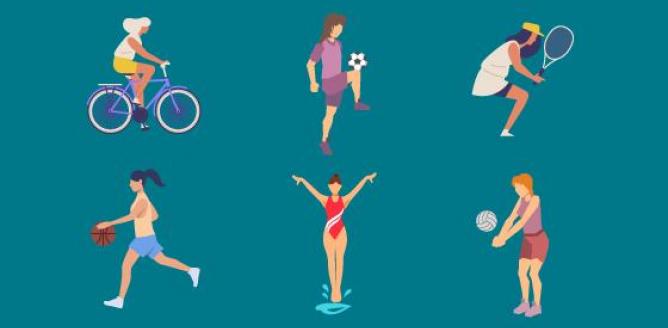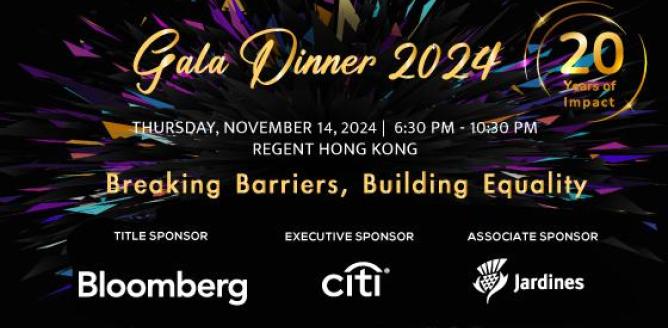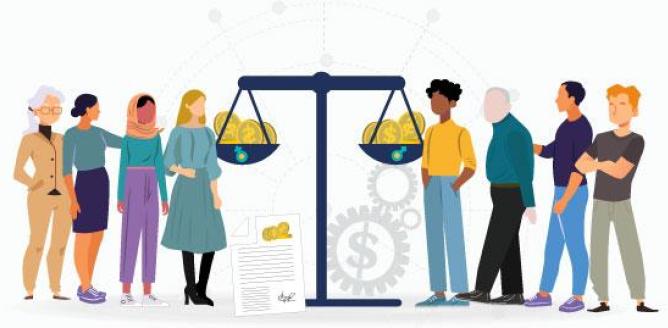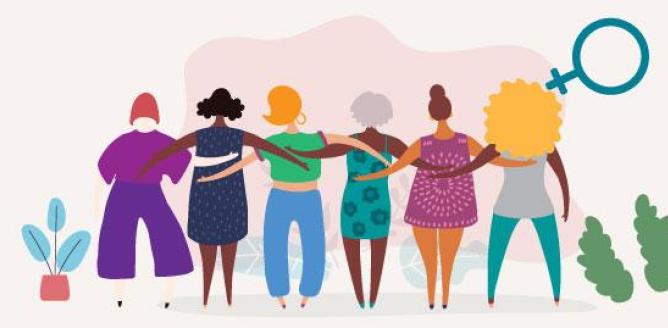“Too often women are not supported enough or are discouraged from choosing their path. I hope together we can change that. For me, it was a question of resilience. What others marked as flaws or disadvantages about myself – my race, my gender – I embraced as fuel for my success.” Serena Williams, American professional tennis player
The Women's World Cup kicked off in France this month so it’s a good time to talk about gender equality in professional sports. Women in sport are not immune to the gender pay gap, with some shocking extremes.
Brazilian player Neymar Jr., the highest paid male footballer, earns as much as the top earning 1,693 women footballers, or all seven of the top women’s leagues combined. Equally inequitable, Forbes listed the highest-paid athletes of 2018, but there is not one single female in the top 100.
While tennis demonstrates a more level playing field, with equal prize money for men and women in the four top championships, Serena Williams earns significantly less in endorsements, 3.5 times less than top male players, despite dominating the sport for 20 years.
Close to home in Hong Kong, men’s football is professionalised but women’s is not, as “girls are traditionally encouraged to prioritise education over sport”. Meaning female players often juggle work, school and other responsibilities with limited training opportunities. Attitudes may be slowly changing but star players must move abroad to follow professional opportunities.
Equality is a hot topic right now and some women’s sports clubs are fighting back. In the USA, the women’s national soccer team has brought a lawsuit against their own governing body, alleging “institutionalised gender discrimination” and demanding equal pay with their male counterparts. There are also calls from Professional Footballers Australia to close the $370m gap in the World Cup prize fund. Norwegian female football star Ada Hegerberg is launching a campaign organised by the Union of European Football Associations for gender equality - #TimeForAction.
We are pleased to see there is progress. Nike recently announced it wouldn’t end contracts with female athletes who get pregnant, and Australia’s top sports federations signed up to the “Pathway to Pay Equality” charter.
In Hong Kong, TWF is delighted to support the “Jockey Club InspiringHK SportsCHAT!” programme that aims to support teenage girls participating in sports, building confidence and protecting themselves. Last month, we kicked off our collaboration with InspiringHK Sports Foundation with a series of Positive Body Image Workshops. These will be running at eight local schools this school year. The workshops aim to equip junior secondary school girls with positive attitudes towards their body image and improve their self-esteem.
The Women’s World Cup is an opportunity to reflect, not just on the wider inequalities that women and girls face, but also how empowering sports can be. Sport makes women stronger, physically of course, but also in our confidence, our leadership skills, our networks and our ability and willingness to challenge the status quo.
Get in touch at Fiona.Nott@twfhk.org.





















